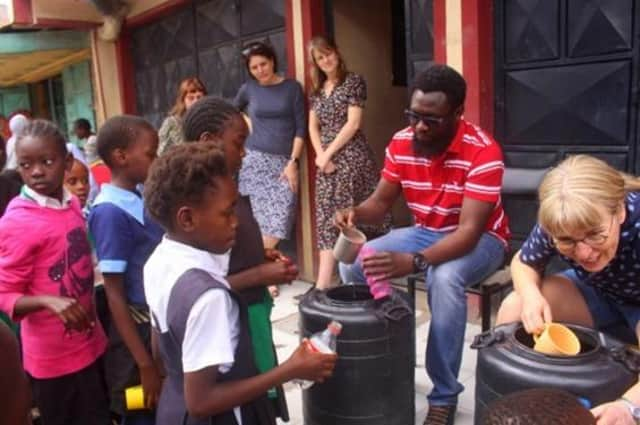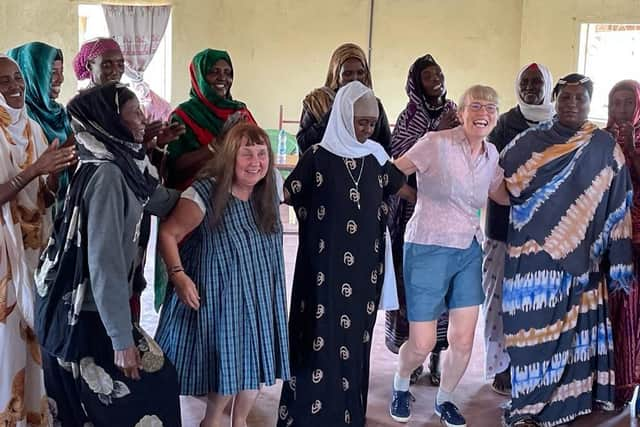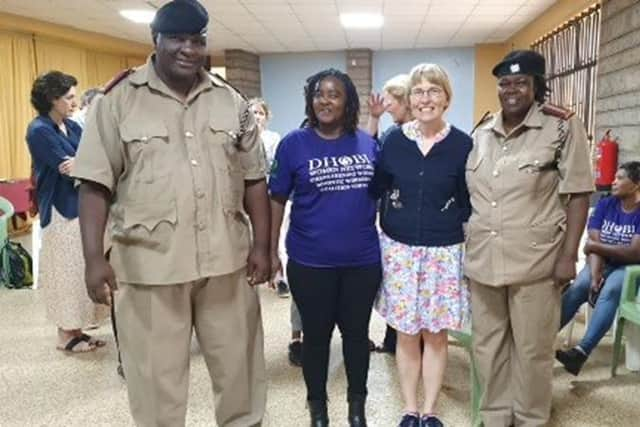Oxfam volunteer from Harborough spends 12 days volunteering with the charity in Kenya
This article contains affiliate links. We may earn a small commission on items purchased through this article, but that does not affect our editorial judgement.


An Oxfam volunteer has spent 12 days working with the charity in Kenya finding out more about its work promoting women’s rights.
Retired teacher Judith Rout volunteers at Harborough’s High Street Oxfam shop.
Advertisement
Hide AdAdvertisement
Hide AdAnd wanting to support the charity even more she self-funded the trip to Africa to see the work it does.


The charity currently funds nine projects promoting women’s rights and Judith visited six of them. The projects receive £60,000 over three years and are totally responsible for spending it.
She was accompanied on the trip by other self-funded Oxfam supporters and two charity employees.
Judith said: “I saw just how much difference the charity makes. Oxfam provides money, offering people a way out and a route to a better life.
Advertisement
Hide AdAdvertisement
Hide Ad“I think the project being responsible for the money is good, because they know where it is needed.”


Among the projects visited by the group was a safe house for physically abused women and members of the LGBT community.
Judith said: “I spoke to two gay men rejected by their families and fearing for their lives just because they are gay. It was horrendous.
“The church in Africa also opposes homosexuality and a prominent MP’s recent support of the church’s views has heightened tension.
Advertisement
Hide AdAdvertisement
Hide Ad“The same project also gives local schoolchildren a daily meal. They queue with a container for porridge made with peanut flour and a slice of bread. Without that they would trade sex for food. It’s illegal, but it happens.”
Men own most of Kenya’s agricultural land, but the charity is helping to fund a women’s farming group, teaching them to grow fruit trees. After the course, they each receive six trees, including orange, mango and avocado, so they can sell the fruit.
Domestic workers are also among the charity’s beneficiaries, and the project teaches them how to use electrical equipment like washing machines and cookers.
Judith told the Mail: “Traditionally, women gather together and wait for comparatively rich households to choose one to clean their house.
Advertisement
Hide AdAdvertisement
Hide Ad“The women have little knowledge of electrical equipment and when they are unable to use a washing machine or cooker, they are often accused of breaking them and their pay is stopped to fund ‘the repairs’. The project trains them to use the equipment properly as well as their legal rights.”
Officially, all Kenyans have equal rights, but a visit to a remote part of the country revealed women do not officially own anything and only men can inherit items and money.
Judith said: “Marriages are arranged and women don’t get married unless they are cut. Female genital mutilation is still a major issue in certain parts of the country, though it is less common.
“We met workers from a project that is training women as paralegals, so they know exactly what the law says.
Advertisement
Hide AdAdvertisement
Hide Ad“I feel very small and inadequate compared to the problems out there. But one of the first things I did when I got home was to increase my monthly donation to Oxfam.”
Visit www.oxfam.org/en/what-we-do/countries/kenya for more information.